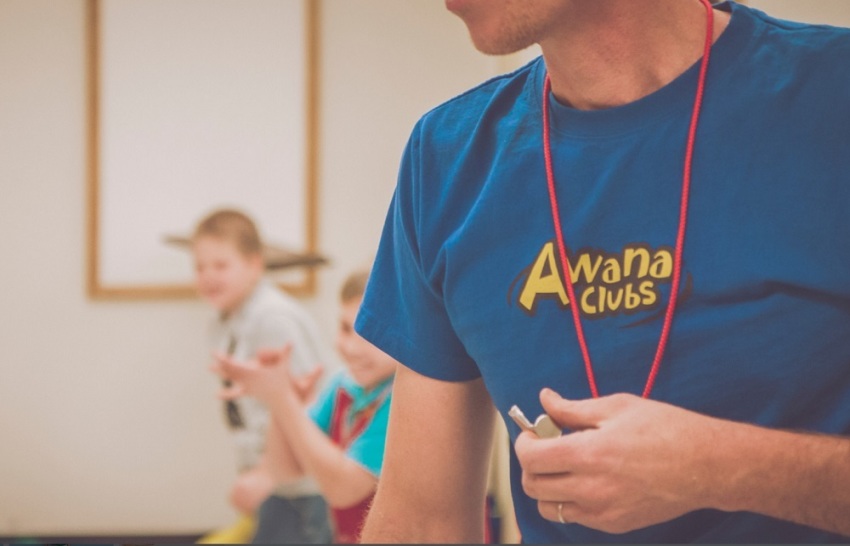Evangelical youth ministry leader Awana to release first-ever Sunday school curriculum

Awana, one of the world’s leading youth ministry and child evangelism nonprofits, will soon publish its first-ever digital weekend curriculum that will be made available to Sunday school classes nationwide in July 2020.
Awana’s new Sunday-focused curriculum, called Brite, comes as the nearly 70-year-old evangelical organization has become known for its weekday evangelism programs held at churches across the United States and its discipleship materials designed for ages 2 through 18.
Awana President and Chief Strategy Officer Matt Markins told The Christian Post that the new curriculum follows two research studies sponsored by Awana that found that between 50 to 60 percent of churches in the U.S. do not have midweek discipleship and evangelism opportunity for families.
“That says something huge for an organization like Awana that focuses primarily on midweek,” Markins said. “Unfortunately, we are confused as being a midweek-only ministry when the reality is we work with 61,000 churches around the world through several different programs and 122 countries.”
“Although we view ourselves as a child discipleship partner, in the U.S. we are known as a midweek Bible memory ministry,” he added. “We see our global footprint as being a child discipleship organization. So we know for us to go into the future, we have to have a whole other set of resources to help the church effectively reach kids to the gospel and help them to make disciples.”

Awana’s aim with the new curriculum is to raise a generation of “resilient disciples” through engaging content that not only teaches children and teens about the Bible but also provides them with apologetics education to prepare them for times when their faith will be tested in life.
The curriculum seeks to supply kids with the “resistant strength” so they will not “break against the weight of culture.”
“We have to prepare kids for the year 2050,” Markins told CP. “For a culture that's probably very likely going to be much more antagonistic and hostile.”
In a press release, Awana CEO Valerie Bell stressed that “it’s time to understand that the greatest challenge to the future of faith is not the rise of secularism through technology, family breakdown or even the vitality of the church.” Rather, she stressed that the greatest challenge to the future of the church is “the need for resilient discipleship of our children.”
In a recent study, the evangelical polling firm Barna Group found that 13 just percent of young adults between the ages of 18 and 35 who grew up with a Christian background can be labeled “resilient disciples” today. Additionally, nearly half of young adults say the church can’t answer their questions.
The new curriculum will be broken up into three age demographics: “preschool” (ages 2-5), “elementary” (Kindergarten through fifth grade) and “students” (grades six through 12). It is being developed by a team of experienced children’s ministry leaders who are looking to address the “needs and pains of those within the local church.”
Some of those needs include having a curriculum that is easy to lead, readily accessible, affordable, customizable to fit each church, and mobile-friendly.
“The ministry philosophy that sustains discipleship into the future is discipleship with children that are based on belonging, believing and becoming,” Markins said. “Belonging is highly-relational where there is the presence of a loving, caring adult engaging in the life of a child. Believing is deeply scriptural ministry rooted in the truth of the Word of God.”
“Becoming is the experiential ministry designed to move kids from a simulation world to a real-world application of faith-based living,” he continued. “Most kids, they kind of view Sunday school as a bit of a simulation where they go and learn about David and Goliath, but are not sure what that has to do with their parents who are divorced or their mom who is using meth, and their dad who is living a double life.”
Markins stressed that Awana’s new curriculum is more than just about teaching kids the Bible.
He said it is centered on preparing local volunteer leaders to play instrumental roles in children’s lives through things like podcasts, weekly training videos and other resources.
“It's a different mindset, compared to a lot of what's out there on the market today,” Markins said.
Markins stressed that Awana is looking to provide a happy medium to what he called the two common ministry profiles present in children’s ministries: “edutainment” and “heavy Bible teaching,” which he said are “low on the relational aspect.”
“What we're doing is really, in a lot of ways, it's kind of shooting in the middle,” he explained. “We’ve got to train adult volunteers to have the conversation on the hearts and minds of the kids who are in their care. That's a huge mindset shift for the Church because we're so focused on teaching our lessons.”
Markins said that Awana is not “in any way” trying to diminish the importance of scripture literacy and knowing Christ. He said the nonprofit wants to elevate the “presence of caring, loving adults.”
Awana is currently doing a field test of the new curriculum at 60 churches around the U.S.
In the elementary age bracket, the curriculum takes students through the Bible three different times over the course of three years in hopes of giving students as much of the overall story arc as possible.
For older kids in middle and high school, the Awana curriculum will have one year focusing on what it means to be disciples of Christ. That portion of the curriculum is hosted by former Saddleback Church High School Pastor Josh Griffin.
For middle and high school students, another year of the curriculum will focus on encouraging them to be advocates for Christ in a postmodern world.
“That is very much a biblical apologetics curriculum for understanding and defending the faith,” stated Markins.
A third-year will focus on “witnesses” to teach students how they can share the Gospel with others.
“The challenges are, as the cultural divide has crept in, how do we help not only secular culture but people who call themselves Christian but who are not convictional Christians?” Markins asked. “How do we help them understand the truth of the Gospel and what Scripture is actually saying who Jesus is? We're going to make sure that what we're doing today is going to produce resilient disciples in a very, very, very different culture.”
Follow Samuel Smith on Twitter: @IamSamSmith
or Facebook: SamuelSmithCP



























